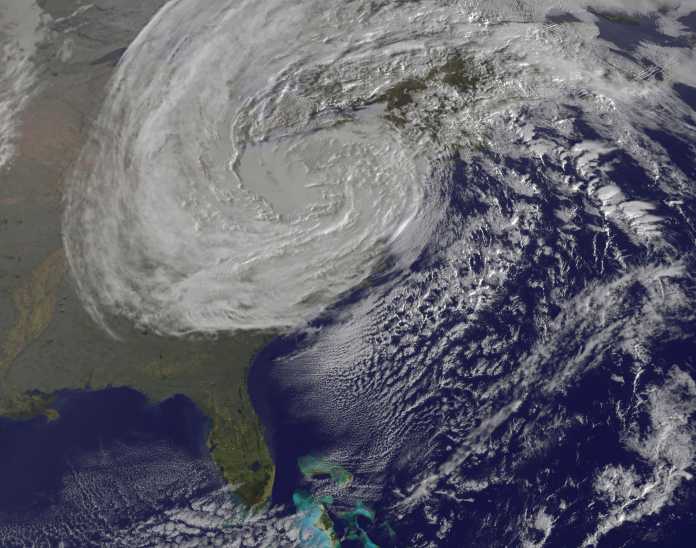With Hurricane Lee churning off the New England coast this past weekend; the mainstream media is now filled with articles claiming climate change will cause more hurricanes to strike New England. In reality, the objective data show New England is experiencing a dramatic and ongoing decline in hurricanes as the climate modestly warms. There is also no indication that the beneficial trend will reverse itself anytime in the foreseeable future.
The Associated Press, USA Today, and ABC News are among the many media entities exploiting the recent offshore storm to make alarmist New England hurricane claims. “Climate change could bring more monster storms like Hurricane Lee to New England,” reads the title of the Associated Press article. “Hurricanes almost never hit New England. That could change as the Earth gets hotter,” reads the USA Today title.
The media articles reference a 2021 paper in which the authors claim they devised a computer model that predicts a warming climate will bring more hurricanes to places like New England. The planet has been modestly warming since the end of the Little Ice Age approximately 150 years ago, so if the computer model is accurate, we should already be seeing a longstanding increase in the frequency of New England hurricanes. The objective data, however, show a dramatic decline in New England hurricanes.
The National Oceanic and Atmospheric Administration (NOAA) keeps meticulous data on hurricanes and hurricane strikes. On the NOAA webpage, “NOAA Historical Hurricane Tracks,” one can see the storm-by-storm path and strength of all U.S.-impacting hurricanes since 1851. One can also focus specifically on hurricanes that have struck New England.
Since 1851, 14 storms have struck or moved over New England at hurricane strength. From the 1850s through the 1950s, New England experienced an average of exactly one hurricane per decade. Since 1960, however, New England is experiencing just 0.65 hurricanes per decade. Moreover, it has now been 32 years and counting since the last New England hurricane, which is the second-longest period without a hurricane in New England history.
It’s not just that New England hurricane frequency is declining. The strength of New England hurricanes is declining, too. The hurricanes from the 1850s through the 1950s had an average maximum strength of 1.8 while over New England. The hurricanes since 1960 have had an average maximum strength of 1.6 while over New England.
Climate alarmists and their media allies try to indoctrinate the public to believe that warmer temperatures directly lead to more frequent and stronger hurricanes. However, many factors determine hurricane formation and strength. Wind shear, for example, rips hurricanes apart before they form and weakens hurricanes after hurricane formation. Scientists have long reported that warming global temperatures may increase wind shear, and that such an increase in wind shear may outweigh any impact of warmer temperatures on hurricanes. In New England, throughout the United States, and throughout the world as a whole, real-world evidence supports that theory.
Ultimately, real-world scientific data trump “expert’” speculation and faulty computer models. Rather than scaring the public into believing climate change is or will make New England hurricanes more frequent and deadlier, the media should report the welcome facts that New England hurricanes are becoming rarer and less deadly as the planet modestly warms.
Originally posted at American Thinker, reposted with permission.

















